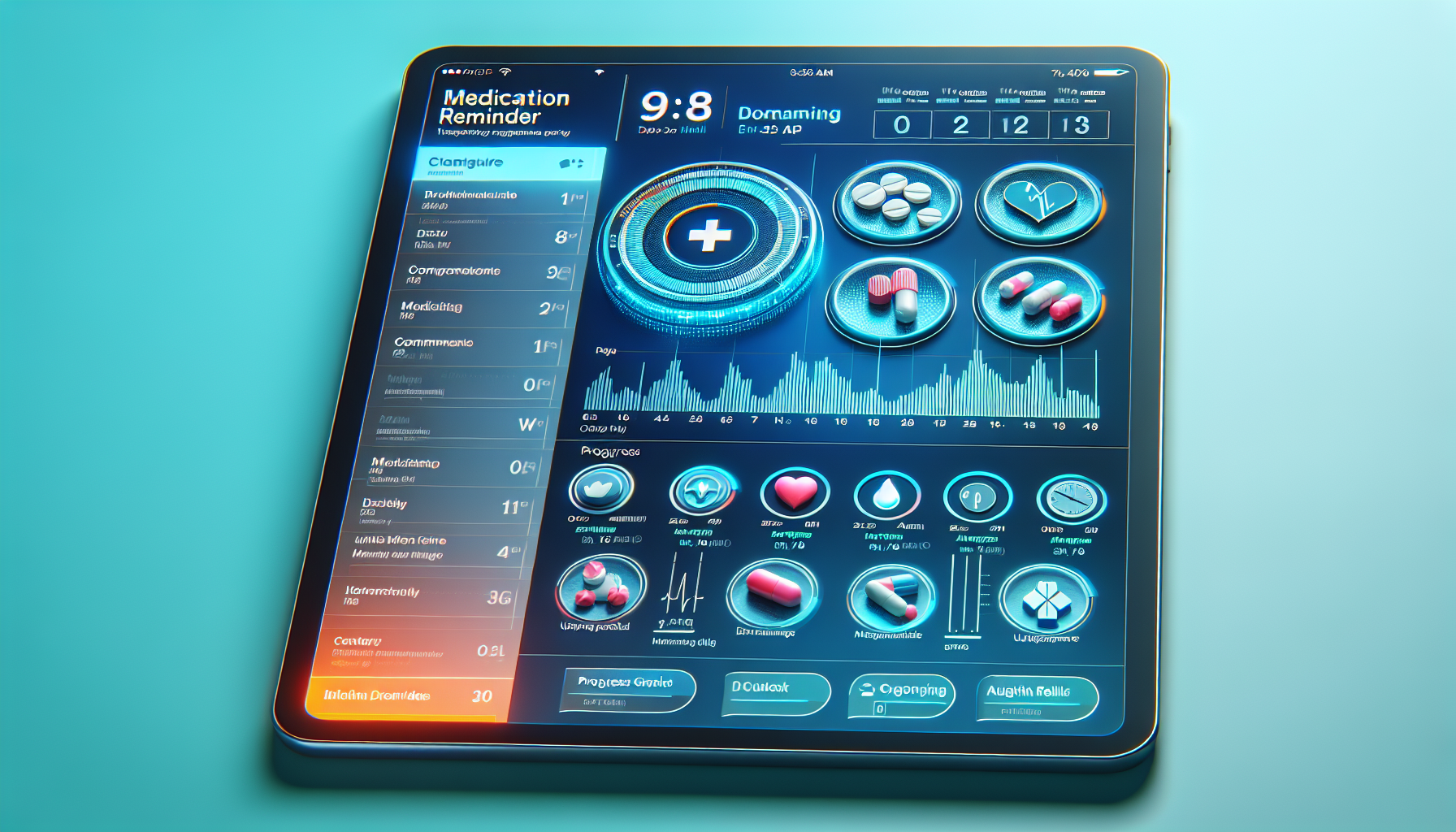In an era where technology and healthcare are increasingly intertwined, digital health has emerged as a transformative force in medication management. The integration of digital tools in healthcare has not only optimized the delivery of care but also empowered patients to take a more active role in their health journey. This comprehensive article explores the multifaceted impact of digital health on medication management, the challenges faced, and the potential for future advancements.
The Evolution of Digital Health in Medication Management
Digital health encompasses a wide array of technologies including electronic health records (EHRs), telemedicine, mobile health (mHealth) applications, wearable devices, and personalized medicine. These tools have revolutionized the way medications are prescribed, dispensed, and consumed.
EHRs serve as a digital footprint of a patient’s medical history, providing clinicians with real-time access to critical health information. This facilitates better-informed prescribing decisions and coordination of care. Meanwhile, telemedicine has broken down geographical barriers, allowing patients to consult with healthcare providers and receive prescriptions remotely.
Mobile health applications offer medication reminders, health tracking, and data analytics, which enhance adherence and enable patients to monitor their health outcomes. Wearables track physiological parameters, offering insights into the effectiveness of medications and the need for dosage adjustments.
Personalized medicine, an approach that tailors treatment to individual characteristics, has seen significant advancements with the aid of digital tools, particularly in the fields of pharmacogenomics and nutrigenomics. For instance, the role of pharmacogenetics in personalized medicine has been pivotal in understanding how genetic factors affect drug metabolism and response, leading to more precise medication regimens.
Digital Tools Enhancing Patient Engagement and Adherence
A key benefit of digital health in medication management is the enhancement of patient engagement. Interactive tools and apps that facilitate tracking medication schedules, receiving refill reminders, and accessing medication-related information contribute to greater adherence to therapy. For example, the benefits of drug dispensing technology in pharmacies, such as smart pill dispensers and automated refill systems, have significantly reduced the burden on patients, ensuring timely intake of medications.
The relationship between digital health and various aspects of wellbeing, including Cardiovascular Health, is undeniable. Advanced monitoring devices and apps help patients with chronic conditions, like hypertension, track their health indicators in conjunction with medication intake, promoting a holistic approach to disease management.
Addressing Medication Errors and Safety Concerns
Digital health tools also play a crucial role in preventing medication errors. EHRs and prescribing software with decision support systems can alert healthcare providers to potential drug interactions, allergies, and dosage errors before they occur. Moreover, Medication Errors and Prevention Strategies have been significantly bolstered by the use of barcoding and RFID technologies in hospitals, ensuring the right patient receives the right medication at the right dose and time.
Integration with Dietary and Supplemental Health Management
The interplay between medication, diet, and supplements is complex. Digital health platforms can integrate medication regimens with dietary plans and Advancements in Personalized Supplement Formulations, taking into account potential interactions and ensuring a balanced approach to health.
The Challenges and Limitations of Digital Health
Despite the progress, there are challenges in the widespread adoption of digital health technologies. Digital literacy, privacy concerns, and unequal access to technology are significant barriers. Additionally, the healthcare industry faces the daunting task of ensuring that digital health solutions are interoperable, secure, and compliant with regulations.
External Resources Supporting Digital Health Adoption
The benefits of digital health in medication management are supported by various high-quality resources. The Agency for Healthcare Research and Quality (AHRQ) provides extensive research on health information technology and its impact on medication safety. The Center for Connected Health Policy (CCHP) offers comprehensive information on telehealth policy issues, which are essential for understanding the regulatory landscape of digital health.
Future Directions in Digital Health and Medication Management
The future of digital health in medication management is promising, with emerging technologies such as artificial intelligence (AI), machine learning, and blockchain poised to further enhance the safety, efficiency, and personalization of medication therapies. The potential for AI to predict medication-related outcomes and for blockchain to secure health data transactions could revolutionize the field.
Conclusion
The impact of digital health on medication management is profound and far-reaching. Through the enhancement of patient engagement, reduction of medication errors, and integration with dietary and supplemental health, digital health technologies are reshaping the landscape of healthcare. As we continue to navigate the challenges and embrace the opportunities, the future holds immense potential for further innovations that will continue to improve patient outcomes and the overall quality of care.
For more insights into optimizing health outcomes through medication and supplements, explore articles on Medication Optimization for Better Health Outcomes and Strategies to Enhance Supplement Absorption and Effectiveness, which delve into the nuances of effective treatment strategies. The journey towards a digitally empowered healthcare system is ongoing, and each step forward promises a healthier tomorrow.



